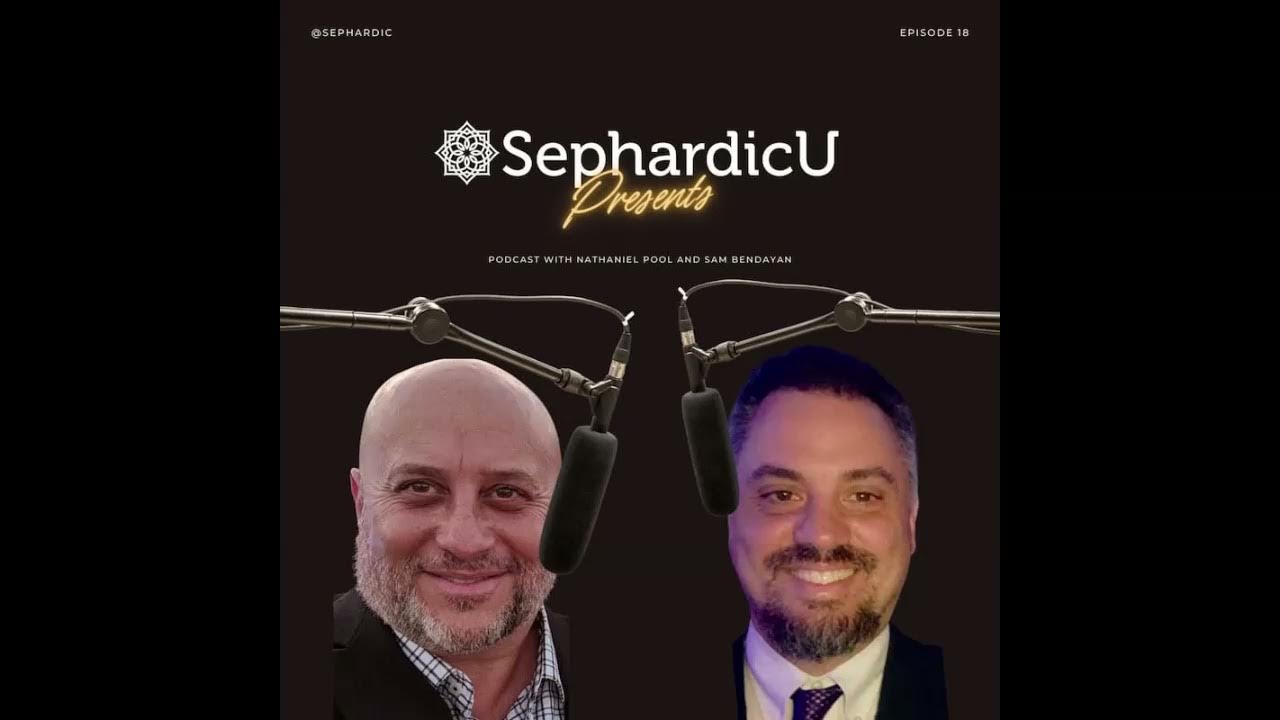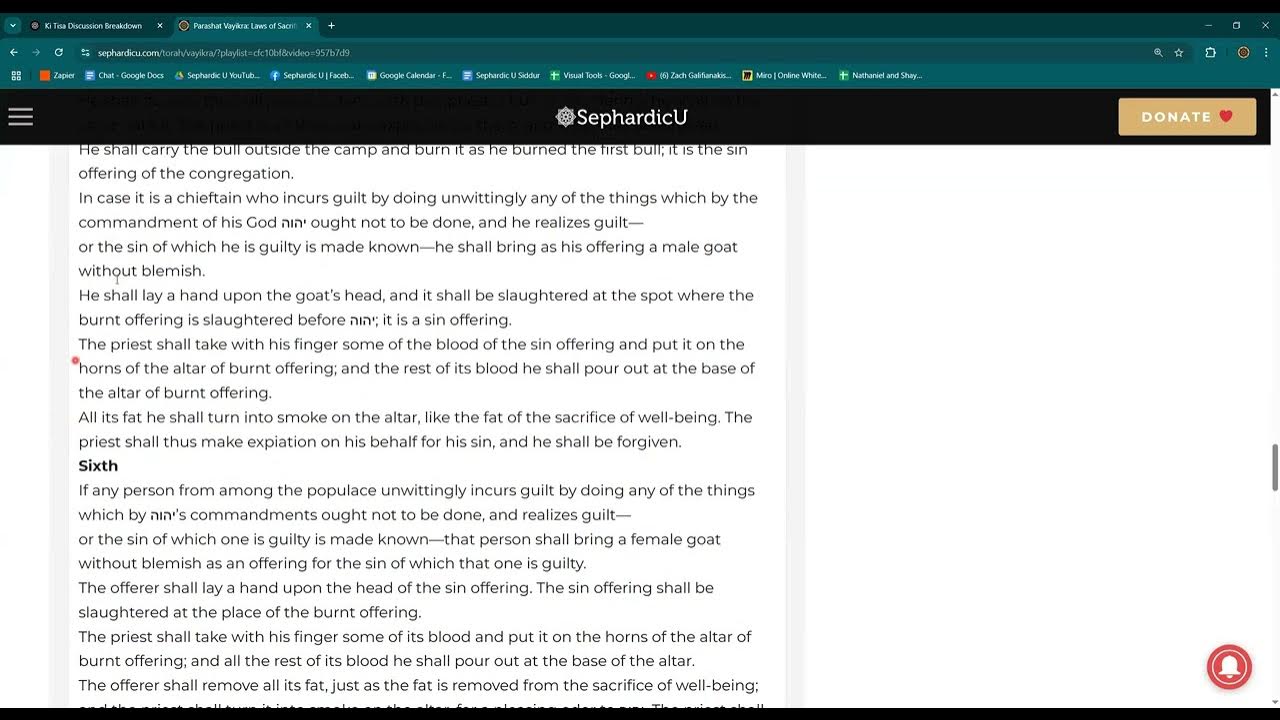דַּבֵּ֞ר אֶל־כָּל־עֲדַ֧ת בְּנֵי־יִשְׂרָאֵ֛ל וְאָמַרְתָּ֥ אֲלֵהֶ֖ם קְדֹשִׁ֣ים תִּהְי֑וּ כִּ֣י קָד֔וֹשׁ אֲנִ֖י יְיָ אֱלֹהֵיכֶֽם
Speak unto all the congregation of the children of Israel, and say unto them: You shall be holy; for I YHWH your God, am holy.
The word קדוש is traditionally translated as holy. The more meticulous commentators explain that קדוש means separate, designated, set aside. Consequently, all which is sacred is also קדוש because it must be set apart and not accessed by all. In that sense, the opening verse of Parashat Kedoshim is understood as saying that just as God is set apart from the world, so devout Israelites must separate themselves from the rest of the people, from the nations, and from the crowd. According to Nahmanides, the process of separation continues within the nation, as those who want to be spiritually elevated take upon themselves additional measures of abstinence and religious practices.
This interpretation raises several problems:
- Immediately following the imperative “be holy!” the Torah lists forbidden actions along desired ones. Most of them are natural laws, preached, if not practically followed, by most civilized societies. Nowhere in this portion or in the Bible can we find support for the idea of קדש עצמך במותר לך – abstain even from the things which are allowed.
- In Exodus (19:6) God refers to the Israelites as מַמְלֶ֥כֶת כֹּהֲנִ֖ים – a kingdom of priests. Since the role of a priest is to teach and promulgate knowledge of the Torah, as stated by Malachi (2:7), this designation means that just as the Kohanim are the spiritual leaders of the nation, so the nation should become a spiritual guidelight for the whole world. This idea is also supported by the famous words of Isaiah (2:3) and Micah (4:2): “…many nations will say, let us ascend the mount of the God of Jacob, so He will teach us His ways and we will walk in His paths.” How can we succeed in that mission if we become aloof and search for ways to be better than others?
- The interpretation of קדוש as holy suggests a level of separation between factions of the nation and between individuals, but the language of the whole chapter is one of friendship and connectivity. To illustrate that, here is the list of words which refer to different segments of the nation and the family in the first 18 verses of chapter 19: כָּל־עֲדַ֧ת בְּנֵי־יִשְׂרָאֵ֛ל; אִמּ֤וֹ וְאָבִיו֙; לֶֽעָנִ֤י וְלַגֵּר֙; בַּעֲמִיתֽוֹ; רֵֽעֲךָ֖; שָׂכִ֛יר; חֵרֵ֔שׁ; עִוֵּ֔ר; דָ֔ל; גָד֑וֹל; עֲמִיתֶֽךָ; בְּעַמֶּ֔יךָ; רֵעֶ֑ךָ; אָחִ֖יךָ; עֲמִיתֶ֔ךָ; בְּנֵ֣י עַמֶּ֔ךָ; וְאָֽהַבְתָּ֥ לְרֵעֲךָ֖ כָּמ֑וֹךָ – All the congregation of the children of Israel; mother and father; the poor and the sojourner; your companion; your friend; a hired worker; a deaf person; a blind person; a poor person; an important person; your tribesmen; your friend; your brother; your companion; your fellow men… and the culmination “love the other as you love yourself.” This list shows without doubt that the theme of the chapter is inclusivity and friendship, rather than the creation of a holy, elitist religious group.
I would therefore suggest a different interpretation of קדוש, one which is in line with its original Hebrew context – unique. Verse 19:2 will be translated thus:
Speak to all the congregation of the children of Israel and tell them: you shall be unique, for I, God, am unique!
Already the early Mishnaic scholars emphasized the idea of an individual’s uniqueness. Talmud Yerushalmi (Berakhot 9:1) mentions a special blessing recited upon seeing a great multitude:
ברוך חכם הרזים כשם שאין פרצופיהן דומין זה לזה כך אין דעתן דומה זה לזה
– blessed is the Master of Secrets [who created so many people], each with a unique face, each with a unique personality.
This blessing, as other statements in Rabbinical literature, relies on the beautiful concept, found in the first chapter of the Torah, that humans were created in the image of God.
Throughout human history, the uniqueness of the individual was challenged and suppressed by monarchs, tyrants, and totalitarian regimes. Today, we would like to think that, at least in developed countries, such oppression has all but disappeared, and that if it exists it is limited to religious movements which indoctrinate their followers into thoughtless adherence to a clear-cut ideology. Sadly, this is not the case. Though we made significant progress in the ability of mankind to understand and respect differences and otherness, our society, even in countries we would like to think of as modern, is fragmented and stratified. We equate unity with uniformity, and therefore seek to conceal or erase differences. When we fail, we often shut ourselves in a bubble of people who are like us, either physically, religiously, or intellectually, and find there our refuge of unity.
This rejection of human individuality stems from fear and from the inability to appreciate and digest our multifaceted, and sometimes insane, human experience. I have recently found that fear expressed by Yuval Noah Harari a professor of history at Hebrew University and a best-selling author. In his book Homo Deus, Harari argues for a new understanding of mankind, one which makes us nothing more than a random collection of wires, neurons, and chemical reactions. Our experiences, he claims, are all subjective, and there is no objective entity or personality which could be described as human. Harari goes on to predict the end of humanity as we know it, and its replacement by improved cyborgs. Harari’s scientific-philosophical treatise is nothing less than a new way to oppress human creativity and individuality by making them insignificant.
The Torah guides us not to be swayed by ancient or modern ideologues. Each individual is, as the word indicates, indivisible and unique. This understanding leads to an appreciation of one’s own talents and gifts, and to the nurturing of self-esteem and a sense of purpose and fulfilment. It is than extended towards the rest of humanity, as we realize that all others are unique as well.









Ohr HaChaim Yomi – Vayikra